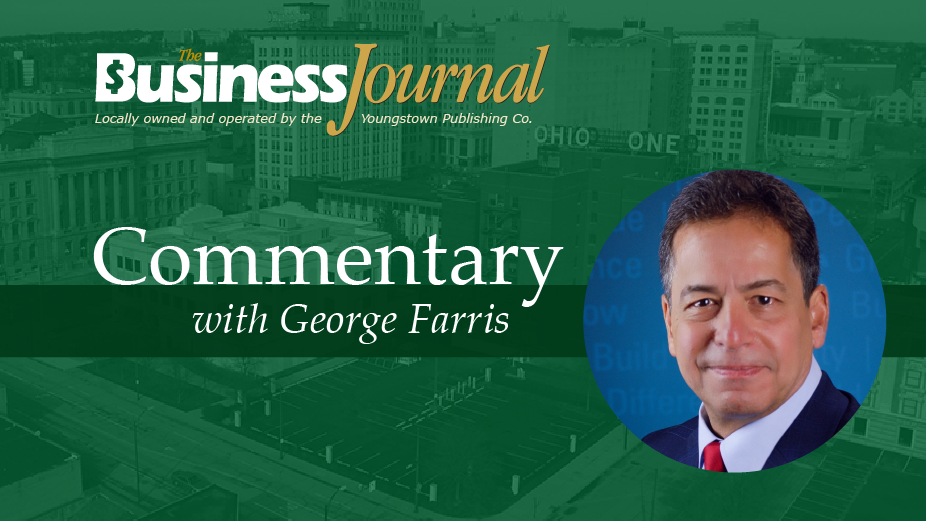By George Farris, CEO, Farris Marketing
YOUNGSTOWN, Ohio – Seems a little silly, doesn’t it?
A little old lady, wearing a crown, walks out on to the balcony of Buckingham Palace. For next 10 minutes, Queen Elizabeth of England offers her royal wave to thousands of her adoring subjects, many whom have waited hours just to see that gesture in person.
Many, but not all, English citizens revere the monarchs. What do folks elsewhere think about the royals?
England is a democratic monarchy; the king or queen has no real power. So – no disrespect intended – the royals come across as sports team mascots. Mascots don’t participate in the game. They aren’t members of the team. But mascots represent the team and for whom it plays.
Also, mascots are usually popular. When Brutus, the Ohio State mascot, comes on stage, he gets almost as many cheers as the actual teams and players. Maybe mascots are popular because they DON’T play in the games – so they never let you down.
The English monarchs might also be compared to animated brand mascots in advertising. I bet Martin, the GEICO Gecko, could even fill in for King Charles III from time to time. Like the king, Martin is very polite but has a Cockney accent.
Another comparison is professional wrestling. WWE stars dress up, sometimes wearing capes and compete for a crown. And you always know the stars are acting, pretending to be really fighting. Is that what the royals are doing – pretending to run England, when they reign but don’t rule?
GOOD FOR ENGLISH BUSINESS
While some Americans find the idea of a powerless monarchy incomprehensible, a goodly number of English brands find that a connection to the royals is very good for business. The monarchy is one of the strongest symbols of the United Kingdom and this gives English brands an edge, finds a study by The University of Warwick. That edge is worth billions of dollars in annual exports.
ROYAL INFLUENCERS
When it comes to influencing consumer behavior, the Kardashians have nothing on the Windsors. What they wear, drive, drink and buy is followed. And if the royals buy something, the public is sure to follow – resulting in a spike in sales for some lucky organization.
Businesses also benefit directly from the Royal Warrant – a crest seen on various products from companies that supply goods or services to the royals. That crest is a great marketing tool, domestically and abroad.
NEGATIVE PERCEPTIONS
For years now, critics who call for reform have questioned the idea of monarchy existing in a modern democracy. The monarchy connected to the British Empire held sway over weaker nations and forced its culture on much of the world for many years.
STABILITY, HIGH BRAND EQUITY
Criticism aside, research shows that visuals of the monarchs generate impressions of brand stature and equity. That brand stature and equity helps companies associated with the monarchy build their brands.
Most marketing experts agree the monarchy is masterful branding. In fact, the next time you hear the band play “God Save the King,” remember that when it comes to branding, the English monarchy rules.
